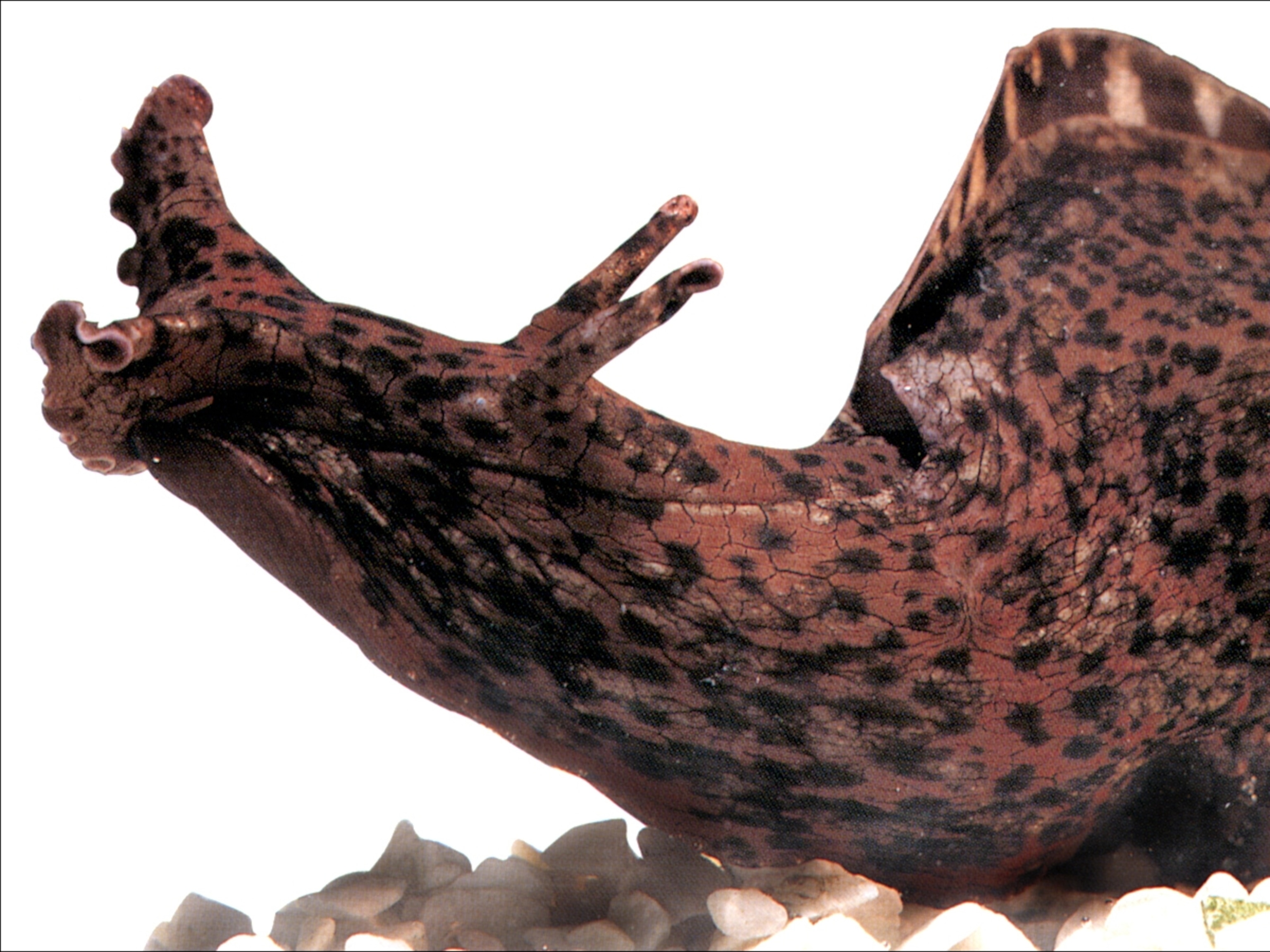
Wasabi: More Than Just a Hot Sushi Condiment
There’s more to wasabi than meets the eye—or rather, more forcefully, the nose. It’s not only an essential in Japanese cuisine, but it may also soon help us devise more effective painkillers, and it’s the secret behind a new kind of fire alarm for the hearing impaired. And by the way, most of us in the United States have never tasted real wasabi. We’ve all been deceived. More on that later.
Wasabi—the innocent-looking green paste that accompanies sushi and sashimi, a too-big bite of which can make your sinuses explode—may soon provide us with the key to creating new and better painkillers. So predicts physiology professor David Julius and his colleagues from the University of California, San Francisco, whose recent research has revealed the structure of the wasabi receptor.
The wasabi receptor, a complex protein located on the surface of sensory nerve cells, plays a crucial role in pain perception. When an irritating substance—such as wasabi, onion, mustard oil, tear gas, cigarette smoke, or automobile exhaust—comes into contact with the receptor, it prods the cell into sending a distress signal to the brain, which responds by causing the body to variously sting, burn, itch, cough, choke, or drip tears.
Now, thanks to a technique called single-particle electron cryomicroscopy (nicknamed cryo-EM), we know exactly what that annoying receptor looks like in 3-D. Until recently, cryo-EM, which involves freezing a tiny protein sample and then bombarding it with electrons, produced fuzzy and unhelpful pictures of proteins (discouraged researchers sometimes referred to it as blob-ology).
Now, however, with new improvements, cryo-EM is capable of providing a stunning resolution of 4 angstrom—that is, it can distinguish between objects as little as one four-billionth of an inch apart, which is about the diameter of a water molecule.
This degree of precision allows scientists to see just where and how various kinds of irritants bind to the receptor molecule, information that may in turn help pharmaceutical companies design drugs to interfere with the process and block the pain response.
The wasabi receptor, officially known as TRPA1, is one of a family of receptors collectively known as transient receptor potential (TRP) ion channels. It’s a relative of TRPV1—commonly known as the capsaicin receptor. The capsaicin receptor responds to thermal heat, as when you burn your tongue on a mouthful of baked potato; capsaicin, the chemical in hot chili peppers that just makes you feel as if your mouth is on fire; and—oddly enough—to spider venom. (If you’ve ever bitten into a hot pepper, you know what a spider bite feels like. See Peppers: Can You Take the Heat?)
TRPA1 receptors, however, are even more versatile than capsaicin receptors. As well as pungent foods and environmental pollutants, TRPA1 is set off by pain-triggering chemicals produced by the body itself—for example, in response to inflammation or to diseases such as rheumatoid arthritis—and TRPA1 may be responsible for the relentless itch we develop in response to poison ivy or to conditions such as eczema, liver failure, and various nervous disorders.
The TRPA1 receptors that respond to wasabi are concentrated in the nasal passages, which is why a healthy dab on your California roll gives you the sensation of a searing goose up the nose. The chemical responsible for this effect is a sulfur compound called allyl isothiocyanate, which also puts the kick in horseradish.
A whiff of allyl isothiocyanate is powerful enough to rocket you out of a sound sleep. That’s why Seems, a company based in Tokyo, is now manufacturing and distributing wasabi-based fire alarms. The wasabi alarms are intended for use by the deaf, who can’t hear the wail of conventional smoke detectors. According to researchers at Japan’s Shiga University Medical School, who tested a wide range of potential wake-up odors (among them rotten eggs, banana, coconut milk, and peppermint), a jet of wasabi jolts hearing-impaired slumberers awake in less than two minutes.
The nose-searing punch of allyl isothiocyanate is so distinctive that it’s tempting to believe that we couldn’t possibly mistake it for anything else—but it turns out that we can. In fact, when it comes to wasabi, most Americans have never tasted the genuine article.
Real wasabi (Wasabia japonica, or Japanese horseradish) is native to Japan, where it has been cultivated for at least a thousand years. It’s notoriously tricky to grow, since it thrives only in clear running water, and the rhizomes—which are grated to make wasabi powder—can take two years or more to reach maturity. For these reasons, genuine wasabi is expensive and is rarely seen outside of Japan.
Luckily, wasabi has a lot of spicy relatives. It’s a member of the Brassicaceae family, along with broccoli, kale, cauliflower, Brussels sprouts, mustard, and (European) horseradish. And it’s this last—European horseradish (Amoracia rusticana)—that we ordinarily get with our sushi platters, ground into a nose-tingling paste, with an added dash of mustard and a splash of green food coloring.
Wasabi and European horseradish are similar. A prime constituent of both is the sinus-zapping allyl isothiocyanate, but they’re not identical twins. For one thing, the ingredients of true wasabi are volatile. Wasabi powder, added to water, loses its zing in about 15 minutes (though it can be stabilized somewhat with vinegar or lemon juice). Horseradish, on the other hand, stays hot for hours.
And, say those in the know, wasabi and horseradish simply don’t taste the same. Horseradish, for example, contains a hefty dose of 2-phenylethyl isothiocyanate—a compound totally missing from wasabi—and wasabi in turn features a number of sulfur-containing compounds not found in horseradish.
Want to see what you’re missing? Pacific Coast Wasabi, which now has growing operations in British Columbia, Michigan, Washington, and Oregon, is now doing its best to produce genuine wasabi for the North American market. The bad news: Half a pound costs $70.





